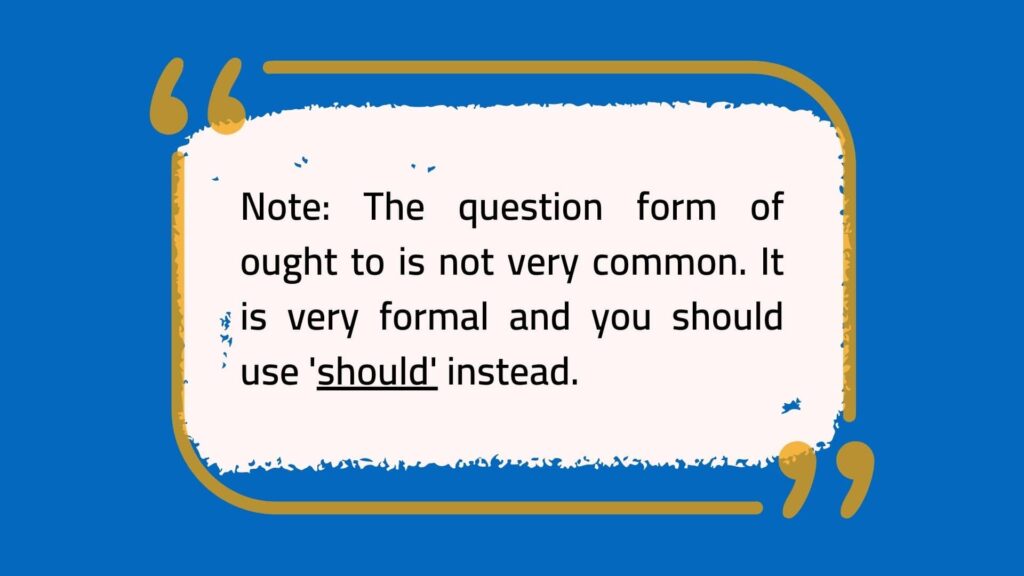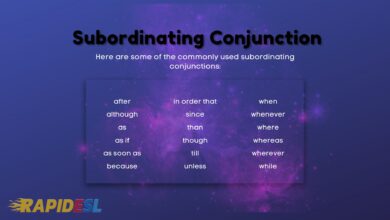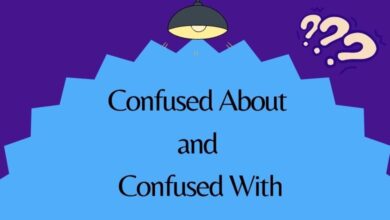
7 Tips About Ought to vs should | Difference between Ought To & Should
7 Tips About Ought to vs should (with Examples)
Both “should” and “ought” are examples of modal auxiliary verbs, which are verbs that modify the primary verb, alter its meaning, and add information about the activity but have no independent meaning.
Difference between Ought To & Should
Ought to and should are similar in meaning. Should is more common than ought to. Ought to is more formal than should. Consider the following examples:
- There should be more tables here. (means the same as There ought to be more street lights here.)
- I really ought to exercise more; I am becoming fat. (means the same as I really should exercise more.)
When to Use Ought to vs Should?
- The word “ought to” conveys a stronger sense of moral duty or obligation. You should do it, not merely consider it as something you might do.
- It’s common to use “should” instead of “ought to”. Compared to “ought to,” “should” is less formal and less demanding.
- A sentiment or an obligation is conveyed by the word “ought to” It can be used in sentences like, “You ought to do that”.
- Should is a judgmental or advisory word.
- The adverb “should” denotes something that is “needed, necessary, or proper.”
- “Should” is a verb that implies “to be morally or legally required to do something,” but “ought to” means “should have done something” or “it would have been the correct thing to do”.
- There is a moral obligation when the word “should” is employed. When there is a moral requirement but it would have been the correct thing to do, the word “ought to” is employed.
Should as a Question Tag in:
In spoken English, should is normally used as a tag for clauses with ought to:
They ought to bring their own mobiles with them, shouldn’t they? (This is better than saying: They ought to bring their own mobiles with them, oughtn’t they)
So in a nutshell, The verb “ought to” is used to suggest or advise. “Ought to” also conveys significant possibility, presumption, or anticipation, frequently with the concept that something is deserved. Although Americans prefer the less formal terms “should not” or “had better not,” “ought not” (without the “to”) is used to urge against doing something. In many cases, “should” and “ought to” can be used interchangeably with a slight change in meaning to indicate formality of a different level of affirmation.

Should vs Ought to Examples:
- You ought to stop smoking. (recommendation)
- Mary ought to receive the prize. (She deserves it)
- Our house ought to increase in value after ten years. (probability)
- Tina ought not drink so much. (advice against something (notice there is no “to”))
- When you go to London, you should visit Big Ben. (Recommendation)
- You should focus more on your studies. (Advice)
- I should be in the office by 9:00 AM. (Obligation)
Check out other related grammar articles:
Phrasal Verbs Beginning with A






